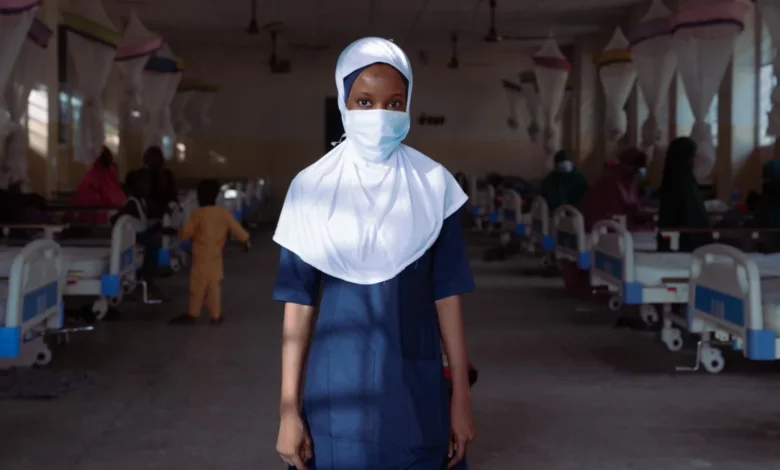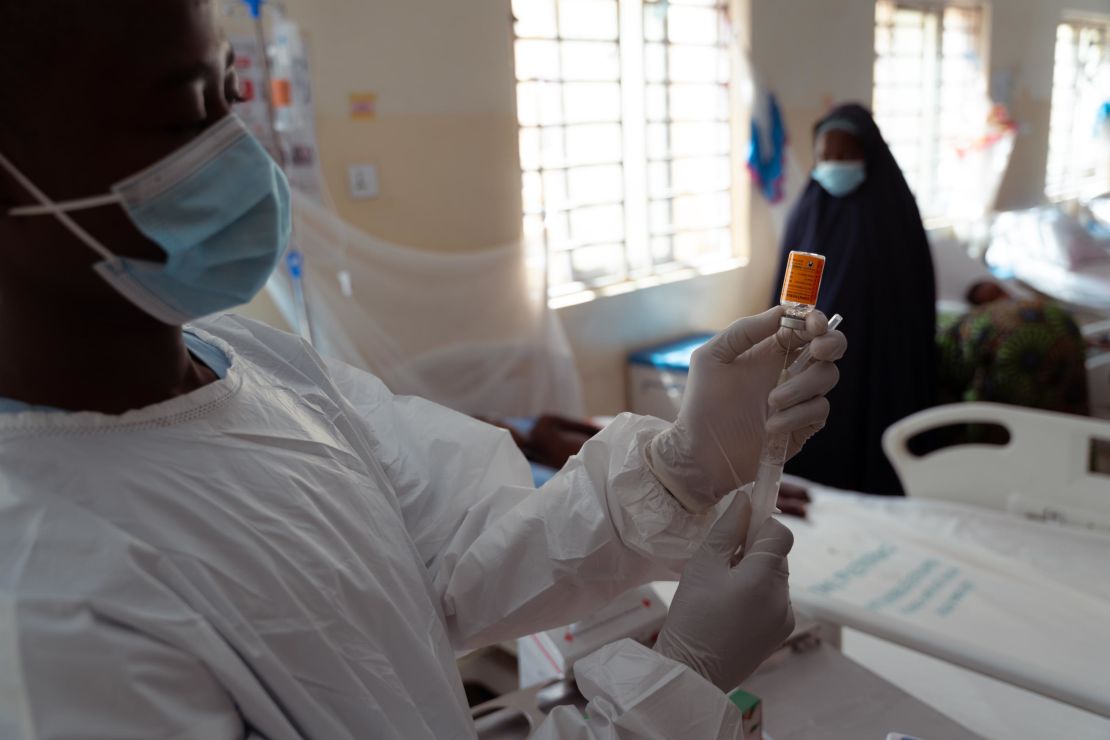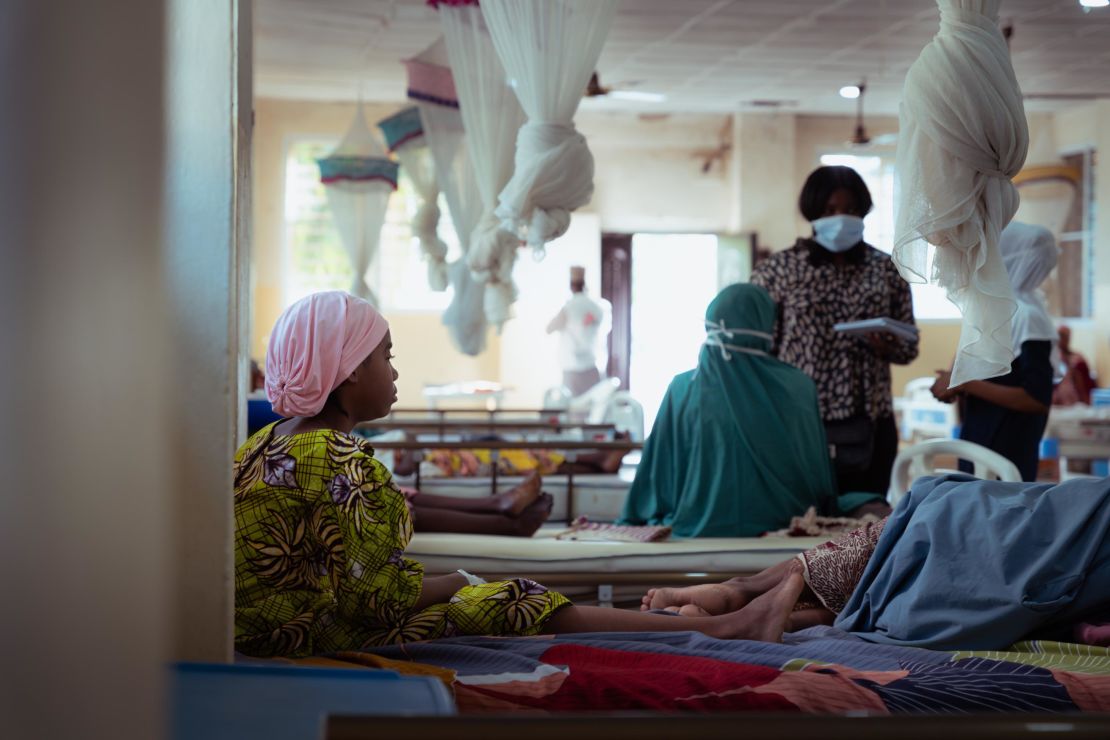
In Nigeria’s northern state of Kano, doctors and health workers are grappling with one of the worst diphtheria outbreaks in recent times.
Cases have been reported in the country since May of last year, but in the past few months, the outbreak has spread at an alarming rate, health officials say. Local, federal, and international bodies have struggled to contain the bacterial disease, with 17,000 suspected cases in Nigeria so far.
Worryingly, the outbreak has now spread to other West African countries such as Niger and Guinea and Medecins San Frontieres (MSF) says these nations are currently facing some of the most severe outbreaks of this vaccine-preventable disease ever documented on the continent.
However, the epicenter remains Kano, MSF health workers told CNN. So far, they have confirmed 9,310 cases and 368 deaths this year.
At its peak, MSF in Kano reported up to 700 cases a week. This rate dropped in September, but cases are slowly starting to rise again, currently at 500 weekly.
A bacterial disease
Diphtheria is a bacterial disease that creates a toxin that kills tissues and attacks cells in the respiratory system, making it hard for patients to breathe and swallow. If the toxin enters the bloodstream, it can damage the nervous system, and cause heart and kidney damage or paralysis, even after recovery, according to an MSF explainer on the disease.
Murjanatu Muhammad, a 30-year-old from Kano, has seen all of her children, 10-year-old Mohammed, eight-year-old Fatima, and twins Jamila and Husseina, aged five, admitted to hospital with diphtheria.
“You can imagine if we didn’t bring these children early enough, we don’t know what would have happened to them,” she told CNN.
For another mother, Firdausa Salisu, her son Auwal Nura has been sick since he was born four years ago and was receiving treatment from a traditional healer who advised against vaccines, his mother said.
“The traditional medicine man that was treating him advised that he should not be vaccinated at the time. By the time he recovered and I wanted him to be vaccinated, I was told he was past the age of receiving the vaccines.”

High mortality in children
Thousands of children like Auwal have experienced the alarming range of symptoms caused by diphtheria, says Dr. Hashim Juma.
Dr. Juma, with over 20 years of experience in the field, is currently based in Kano working as the emergency medical coordinator for MSF.
“Never have I ever faced this outbreak, in terms of the number of people infected, the mortality, and the complications as well,” he told CNN via a phone call from Kano.
“There are many diseases with complications, but this is very serious. Patients come in vomiting blood, paralysis in the legs… there is high mortality, particularly with children.”
Medical workers have been struggling to treat patients effectively, partly due to a lack of diphtheria anti-toxins (DAT).
So far, MSF says it has only been able to provide 5,000 DAT doses to patients.
With each severe case requiring eight to 10 vials each, this remains far from enough to support those who need it. Without treatment, patients face a roughly 50% chance of death, which reduces to a 5% chance if treated, Dr. Dagemlidet Tesfaye Worku, emergency medical program manager for West and Central Africa at MSF told CNN.
DAT doses and antibiotics are particularly hard to come by due to the lack of production, as well as the cost and time needed to manufacture.

Dr. Dagemlidet says that only three companies produce these doses, two of whom are approved by the World Health Organization (WHO).
He added that manufacturers need four weeks to make one batch of 1,500 DAT doses, and treating patients could cost up to 350 Euros ($370) from DAT alone. He believes this needs to change as soon as possible.
“In the short term, we need to improve production capacity of anti-toxins. Long term, we need to invest in research and development,” Dr. Dagemlidet says.
“It’s a global health crisis… in our globalized world, an outbreak can happen here, or in an urban area somewhere else. Global health security is so important.”
Vaccine mistrust
Vaccination has also played a crucial role in this ongoing outbreak. Whilst some vaccine uptake has helped prevent infections, there are a number of barriers from increasing uptake.
As of November, only 30% of patients in Kano had full vaccine protection, according to MSF. This rate is at its lowest in the northwestern state of Sokoto at just 6%. In response, WHO and UNICEF have started a vaccination campaign across 14 states in Nigeria.
Dr. Juma explains that in Kano there is mistrust and lack of awareness surrounding vaccines. He says: “There is a vaccine hesitancy here. People have had a bad experience with the side effects before. During our first intervention, we could see people were not highly welcoming to the vaccine team.”
The lack of vaccination coverage also applies to the rest of West Africa, with 65% of diphtheria patients having never received a single vaccine dose.
In late November, WHO published an updated explainer on diphtheria, emphasizing the importance of high vaccine uptake to tackle the outbreak. The organization recommends six vaccine doses to babies at six weeks old to provide long-term protection.
GAVI, a vaccine alliance programme, also announced on December 4 that eligible countries can now apply to implement diphtheria vaccines into their health programs.
As the outbreak has escalated since July, Dr. Juma has seen vaccine uptake improve. In order to contain this surge of diphtheria, and help prevent future outbreaks too, this trend must continue.

With the disease now present in neighboring Niger, there is concern that once again the population is not adequately equipped. Dr. Juma says that there is little to no vaccination coverage there, a great concern considering the high level of movement between Kano and Niger.
In order to address the outbreak, the message is clear. Vaccination must improve. Dr. Juma says: “We stress the need to make the routine vaccination system stronger and stronger… then you can control the outbreak.”
Lessons have also been learned regarding doses of antitoxins and antibiotics, explains Dr. Dagemlidet. He says: “We need to have at least a minimum quantity of anti-toxins in each country, so when the first cases happen, adequate resources are available to help local areas.
“The best way of responding to emergencies is anticipation and prevention.”




